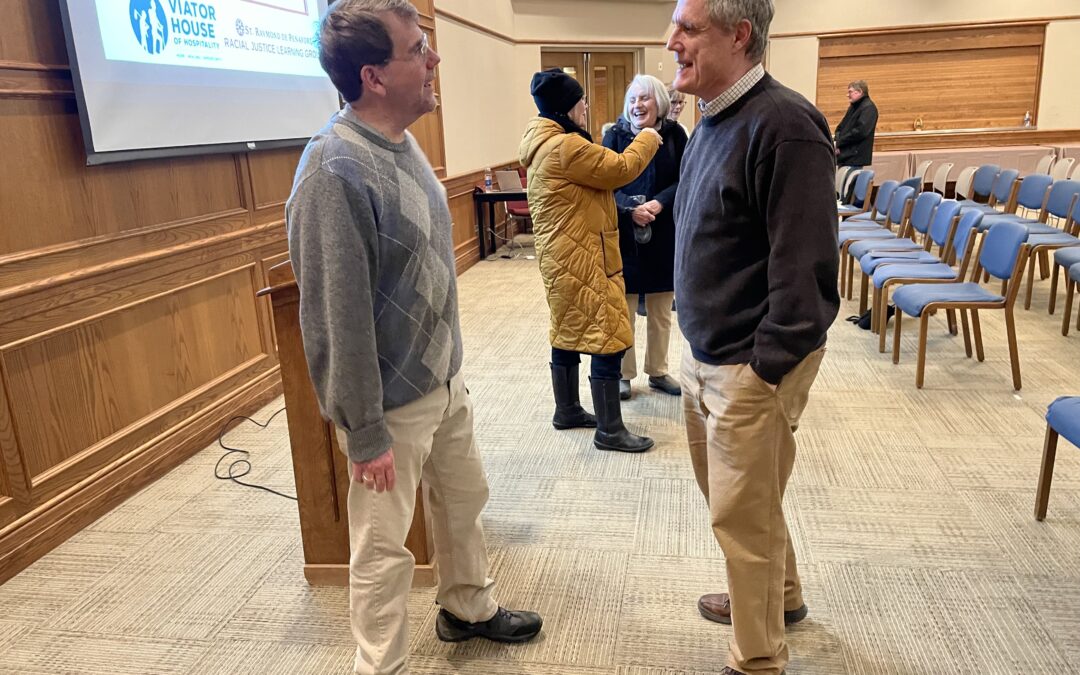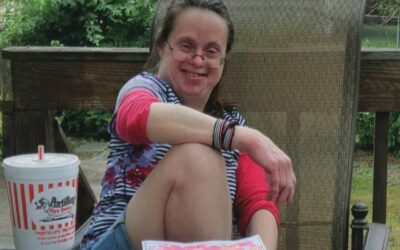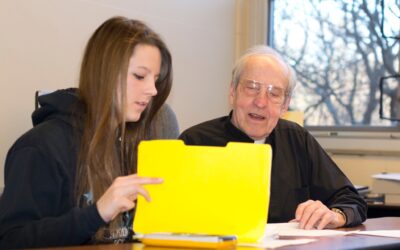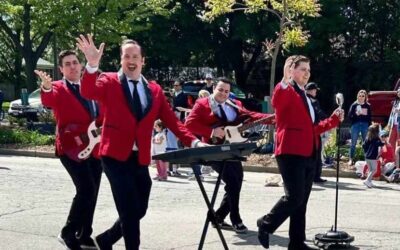Br. Michael Gosch, CSV, a Viatorian religious brother, typically works behind the scenes advancing social justice, but last month he was one of the main draws, when St. Raymond’s Parish in Mount Prospect hosted an evening dedicated to “Supporting Young Asylum Seekers in Our Community.”
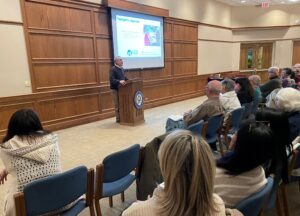
Br. Michael Gosch addresses the crowd.
Members of the parish’s Racial Justice Learning Group hosted the presentation, and in promoting it, they put Br. Gosch’s name front and center, as a graduate of the parish school.
It turned out to be a good tactic. The Monday evening event took place on a bitterly cold night, and yet they packed the place with more than 100 people. Organizers scurried to set up more chairs and print more handouts.
Br. Gosch warmed the evening at the outset when he fondly recalled the religious sisters who had taught him, and the parish priests who had administered the sacraments. Yet, he came that night to share stories of a different kind.
Br. Gosch is one of the founders of Viator House of Hospitality, whose mission is to offer a safe haven to young men seeking asylum in this country. Once they reach the age of 18, they are sent to adult detention while they wait out their case, unless a spot opens up at Viator House.
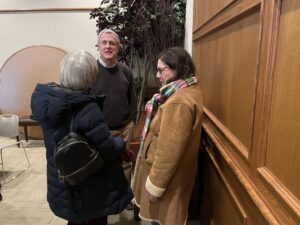
Br. Gosch catches up with parishioners.
Fr. Corey Brost, CSV, executive director of Viator House and a frequent presider at St. Raymond’s, shared these statistics: So far, Viator House has welcomed 98 young men from 23 nations since it opened in 2017. Of those, 31 have been reunited with family members across the U.S., while 18 of them have graduated from high school and another 11 have taken college courses. So far, 22 have earned greater independence with a driver’s license and 21 have moved into a shared apartment since 2020.
Br. Gosch, a licensed social worker, then described the types of trauma these young men have suffered on their harrowing journeys after fleeing their home countries, as well as the services Viator House offers them.
“We put relationship over regulation, where they feel safe; invitation over coercion; and unconditional support,” he said. “We let them tell their own stories in their own time, in their own words and in their own actions. It’s so important to let these young men control their lives, because so much has been taken away from them.”
Organizers said they found the presentation to be deeply moving and informative.
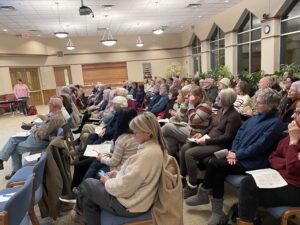
The presentation drew a packed house.
“Fr. Corey and Br. Michael have created such a unique and important space to honor and uphold the humanity of these young men,” said Laura Strybel, of the Racial Justice Learning Group.
The evening also featured Kelly Albinak Kribs, an immigration attorney with the Young Center for Immigrant Children’s Rights in Chicago.
“I cannot stress enough how critical Viator House has been to these young men,” said Albinak Kribs said. “For the first time, they can exhale since detention, in the safety and stability of Viator House.”
Finally, the audience heard from a resident of Viator House itself, Jose, who at 17 fled his native Guatemala for fear of the gangs, who threatened to kill his family if he didn’t join them.
“When I got to Viator House, I felt safe,” Jose said. “That night, they celebrated my (18th) birthday and it was the first time I cried. It was the first time I celebrated my birthday.”
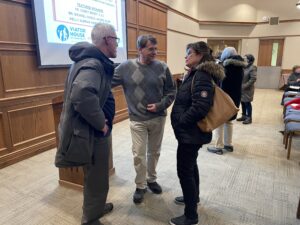
Fr. Corey Brost talks with supporters.
Since then, Jose has earned his high school diploma and attended trade school to work in HVAC. He hopes to start his own business one day, or maybe start his own clothing line. Though his asylum case is ongoing, he now has dreams.
The individual testimonies drew many questions — and interested volunteers — which pleased organizers.
“We hoped people would leave with information about the process and the challenges that must be overcome,” Strybel added. “But we also hoped people would leave with a deeper understanding of how these policies impact individual people and individual lives.”

